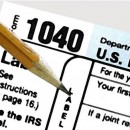 The days of balancing checkbooks, organizing receipt piles and using a printing calculator to help manage your finances may all be a thing of the past. Today, you can find numerous fintech applications that can help simplify the process of everything from balancing your budget to monitoring credit. In fact, new apps are being developed every day and statistics firm Statista estimates that there will be nearly 200 billion apps downloaded this year. Now if you are still using an abacus and have difficulty embracing technological change – don’t worry. Consider easing into it by using some of the tools below. You might just be surprised at how much they can both simplify and empower you financially.
The days of balancing checkbooks, organizing receipt piles and using a printing calculator to help manage your finances may all be a thing of the past. Today, you can find numerous fintech applications that can help simplify the process of everything from balancing your budget to monitoring credit. In fact, new apps are being developed every day and statistics firm Statista estimates that there will be nearly 200 billion apps downloaded this year. Now if you are still using an abacus and have difficulty embracing technological change – don’t worry. Consider easing into it by using some of the tools below. You might just be surprised at how much they can both simplify and empower you financially.
Budgeting
One of the most useful ways to approach your personal finances is to treat them as though they are not personal at all — manage your finances like a business. Do you know your household break-even point? Are you aware of how much you are spending on housing, saving and servicing debt? Unfortunately, most people are completely unaware of exactly how much is coming in after taxes and how much is going out in the form of living expenses.
One of the most effective tools for shedding light on your break-even point is your budget. While rolling up your sleeves and using an Excel spreadsheet can work well for creating a budget, many budgeting apps offer a simplified, more intuitive experience.
Mint
As one of the original budgeting apps, Mint has had plenty of time to revise their platform to become one of the most popular budgeting apps. Like most budgeting options, Mint allows you to aggregate your financial information from credit cards, checking accounts and investments to get an overview of your spending habits and net worth. You can create your own target budget and Mint will make comparisons and alert you when you are over budget. According to Keri Danielski, consumer finance expert for Mint and TurboTax, "Mint can also automatically suggest budgets for users based on their spending habits. The tool can then be personalized to fit the user's needs whether that means making progress toward their savings goals or helping cut down on spending in a certain category."
The tool can also make you aware of transactions that are out of the ordinary – such as large purchases. In addition to the typical data aggregation and budgeting, Mint can also provide you with your credit score. While both the mobile and online version are free, Mint uses targeted ads to monetize their business so you will have to deal with peripheral advertising while using the tools. Mint is a solid overall choice for people looking to learn more about their spending habits over time.
Cost: Free
YNAB – You Need A Budget
For households looking to get back to basics when it comes to budgeting, YNAB may be a good choice. This app helps to educate and simplify the process of balancing your budget. In fact, YNAB helps to develop basic plans to pay off debt and begin saving, making it an attractive option for those that are trying to avoid living paycheck to paycheck. One of the best features is that it doesn’t allow you to budget money that you don’t have to spend. While this basic financial principle may seem obvious, many households struggle with the concept of living within your means. (Below your means is even better.) There are even online courses with an instructor to help educate users on the basics of budgeting.
Cost: $6.99 after 34 day trial
Monitoring your credit
Credit Karma
For consumers interested in educating themselves on their credit, Credit Karma may be a great choice. This mobile and online version provides complete credit reports from TransUnion and credit scores from TransUnion and Equifax. Data is updated weekly and is free. (Like most free app models, users will receive targeted advertising which includes credit offers from Credit Karma partners.) Despite the advertising, Credit Karma is a great tool for monitoring your report and users receive updates on any changes to your report and score. They will also provide suggestions for how to improve your credit score and identify what factors you may need to focus on. You can even do a basic search to see if you were impacted by any credit breaches or simulate the impact of financial decisions on your credit score.
Cost: Free
Credit Sesame
Credit Sesame is another online tool and mobile app that offers access to your credit score. Their score is based upon the Vantage Score 3.0 and your TransUnion credit file. Additionally, they provide a credit report card to identify your areas that need work. While their credit report card is not exactly a full credit report, it can still be helpful for identifying strategies to improve your credit. When you sign up for the site, users also receive $50,000 in identity theft insurance and fraud resolution assistance at no cost. For users that require additional monitoring and identity protection, Credit Sesame offers higher levels of service including Advanced Credit, Pro Credit and Platinum Protection. Like Credit Karma, Credit Sesame will make suggestions on credit offers that might benefit you and relies heavily on advertising.
Cost: Free for Basic Membership, $9.95/month for Advanced, $15.95/month for Pro and $19.95 for Platinum.
Bottom line - Personal finance apps can help simplify functions like budgeting and credit monitoring, ultimately keeping consumers well informed. Since everyone’s situation is unique, consider speaking to your legal, tax and financial adviser to determine which apps are most appropriate for you.
Kurt J. Rossi, MBA, CFP®, CRPC®, AIF® is a CERTIFIED FINANCIAL PLANNERtm Practitioner & Wealth Advisor. He can be reached for questions at 732-280-7550, kurt.rossi@Independentwm.com, www.bringyourfinancestolife.com & www.Independentwm.com. LPL Financial Member FINRA/SIPC.









